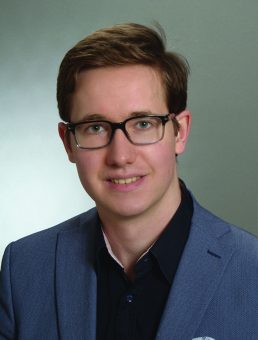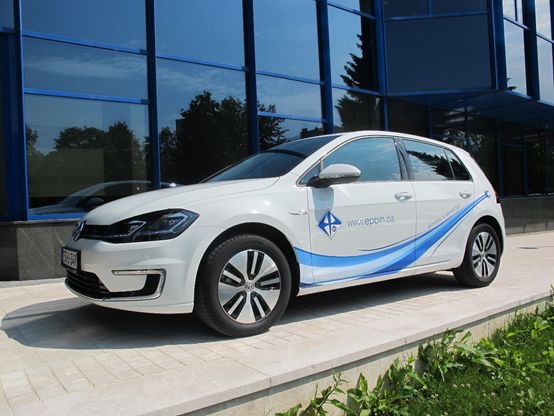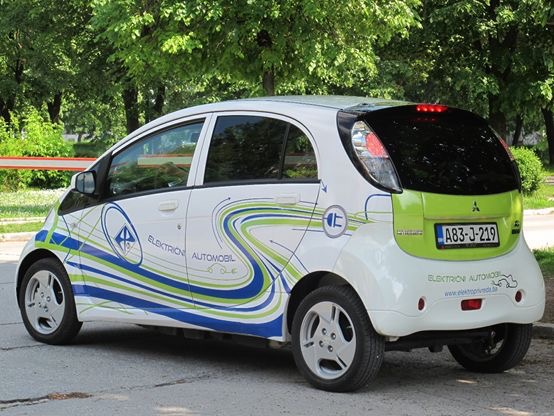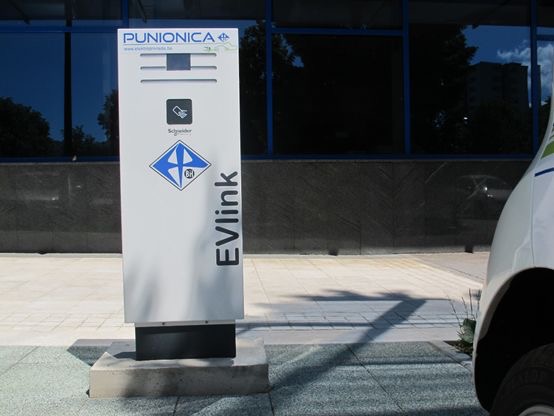
Adnan Bosović, the electrical engineer and expert associate for the development of distributive, energy efficient facilities in the Sector for strategic development in PE Elektroprivreda BiH – Sarajevo, has explained to us the situation in Bosnia and Hercegovina regarding ecomobility, how popular energy efficient cars are and also the situation with charging infrastructure.
EP: What is the situation in BiH in terms of e-mobility? What is the percentage of hybrid and fully electric cars?
Adnan Bosović: Year after year, the number of hybrid cars, which have come on the market much earlier, is increasing. However, these vehicles cannot be charged from the grid. PE Elektroprivreda BiH – Sarajevo has recently purchased the first two electric cars in BiH Mitsubishi iMiEV and Volkswagen e‑Golf. I do not have information on the usage of plug-in hybrid cars in BiH. There is also a small number of transformed electric cars.
EP: In your opinion, what is the reason for a small number of these vehicles in wider use?
Adnan Bosović: It is evident that the market for electric cars in BiH is still at a very early stage of development. However, as in other sectors, it is expected that BiH will also achieve the EU’s level of development of the electric cars market with a certain delay. Given the fact that the sales price of the electric cars is still quite high, the key precondition for this is the introduction of incentives.
EP: What are all the obstacles which buyers but also importers encounter when buying electric cars in your country?
Adnan Bosović: So far, two brands which PE Elektroprivreda BiH – Sarajevo has purchased, are present on BiH’s market. Service equipping and training of service’s personnel is being performed only now. Both buyers and importers have difficulties with but the purchase of electric cars due to the limited offer on the market and larger orders in the EU countries. Other obstacles for the general use of electric cars are lack of public and private charging infrastructure and the drivers’ fear of disappearance of energy before reaching their destination due to the limited reach of the existing electric cars.
EP: Do you expect that BiH will soon provide subsidies to importers of electric and hybrid vehicles as well as tax reliefs to the owners of these cars?
Adnan Bosović: I believe that it is necessary to insist on the introduction of different incentives and benefits according to the model of EU countries since this is the key precondition to finally start with the significant sale of electric cars in Bosnia and Herzegovina.
EP: Does PE Elektroprivreda BiH – Sarajevo influence a change in legislation regarding the simplification of electric vehicles’s registration?
Adnan Bosović: Up to this moment it was early to start with this kind of initiatives, but we notice that the public has matured for the progress in this regard, so we hope to see some concrete steps in the near future.

EP: When do you expect for charging infrastructure, that is the network of charging stations to be built in BiH?
Adnan Bosović: There is already a certain number of chargers for electric vehicles in BiH, primarily in the city of Sarajevo. A good part refers to the chargers in car showrooms, that are intended for their own usage. The first public charging station in BiH was installed by the Hotel Residence Inn Marriott in Sarajevo in 2016, but it is intended only for the hotel guests. The first charging station that PE Elektroprivreda BiH – Sarajevo has installed is placed in front of the Directorate building at 15 Vilsonovo šetalište in Sarajevo. The charger is in the function and we expect its promotion soon. Charging will be free of charge for all owners of the electric vehicles until further notice. In the years to come, we will certainly be witnesses of the spread of charging network and charging stations for electric vehicles in BiH.
EP: Does PE Elektroprivreda BiH – Sarajevo plan to connect with international corridors that is to enable travellers from Europe to charge their electric vehicles in BiH without difficulties?
Adnan Bosović: If BiH wants to connect to international corridors on which electric cars will run, the development of high-power DC chargers is certainly an imperative. Of course, we are aware of the importance of these charging stations, but it’s too early to talk about concrete locations and their number.
EP: When do you expect that the things in the Balkans will change for the better and what steps should be taken?
Adnan Bosović: Time passes quickly and the sector of electromobility is rapidly evolving, so the Balkans needs to keep up with Europe, which means that incentives and different tax reliefs should be introduced, then invest into the charging network for electric cars, as well as purchase electric cars.
EP: What number of cars can the existing distribution grid endure?
Adnan Bosović: We have done detailed analyses on the impact of electric cars’ charging on our distribution grid on which basis we have developed several scientific and expert papers. The results show the average percentage of electric cars breakthrough, from which we do not expect major problems, is 5-10 percent. This means that the distribution grid is not an obstacle for the introduction of electric cars. Of course, the problems may occur locally, in certain places, but operators of distribution system have established ways to increase the capacity of their grids. Naturally, for the greater breakthrough of 20-50 percent, the problems are big and much is changed, but on this topic, there are many scientific and expert papers.

EP: What impact on change does your team of innovation experts have in this sector?
Adnan Bosović: Sector for strategic development in PE Elektroprivreda BiH – Sarajevo is among other things in charge with pilot projects and the introduction of new technologies in our company, so our role in the sector of electromobility is thus clear. We carry out our activities with the help of other sectors. For example, the pilot project of the first charging station could not be possible without the Sector for General Affairs and Elektrodistribucija Sarajevo. The development of electric cars’ market will certainly be supported by many other subjects such as car sellers, environmental funds, municipalities, ministries and other institutions.
EP: Since you have recently shown your first electric cars, can you tell us something more about it? What are its characteristics, what battery does it have and what is battery’s capacity? How many kilometers has it crossed so far? Have you thought about installing solar panels on its roof?
Adnan Bosović: So far we have purchased two electric vehicles as part of the fleet of PE Elektroprivreda BiH – Sarajevo. Those are Mitsubishi iMiEV and Volkswagen e Golf. Mitsubishi iMiEV is a small city car for 4 people whose mo‑ tor has the power of 49kW and the capacity of the battery is 16 kWh which allows maximum range of 160 km. Volkswagen e Golf is an electric car for 5 people and the power of the motor is 100 kW, the capacity of its battery is 35.8 kWh and its range is 300 km. For the time being, the Directorate of the company will use them for local tours in Sarajevo. The cars are serially produced so we are not thinking about their refinement in terms of installing solar panels.

EP: Tell us something about the chargers you are working on, how fast are they?
Adnan Bosović: The first charging station, that we installed was equipped with two Mode3 type 2 connectors, is envisaged for AC charging of 2 vehicles with a maximum power of 2×22 kW. It should be pointed out that the power of AC charging of electric vehicles depends on the power of rectifier in an electric vehicle that is limiting. So, Mitsubishi iMiEV is charging with a power of 3.7 kW at our station and Volkswagen e-Golf with a power of 7.2 kW.
EP: Since you had a chance to drive an electric car, can you describe us your impression?
Adnan Bosović: I had a chance to of course drive our two recently purchased cars, as well as some others during the business visits to the countries in the region. The greatest subjective difference in comparison to the vehicles with manual transmission is that everything is automatic in electric cars. In addition to that, a great acceleration of electric cars has made a powerful impression, but also the fact that they are unusually silent.
EP: Do you have any message for the drivers – pollutants for the end?
Adnan Bosović: The massive use of electric cars is the future and that is something that is already happening in developed countries all around the world. The selling price is still relatively high, but it will definitely fall with greater mass production and with the development of technology. The introduction of incentives makes these cars more affordable to ordinary people and thus we need to insist on their introduction in the countries of our region.
Interview by: Vera Rakić
This interview was originally published in the eighth issue of the Energy Portal Bulletin, named ECOMOBILITY.
